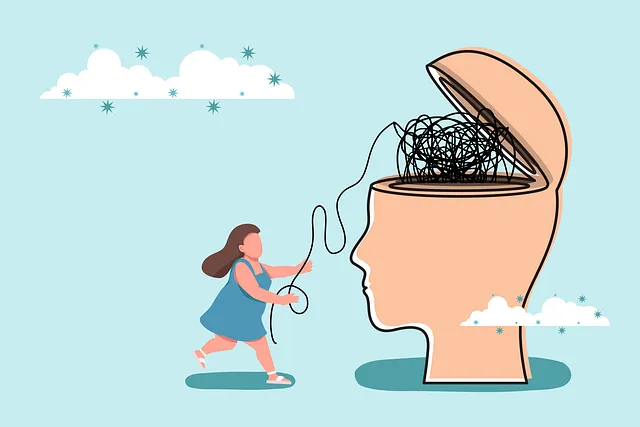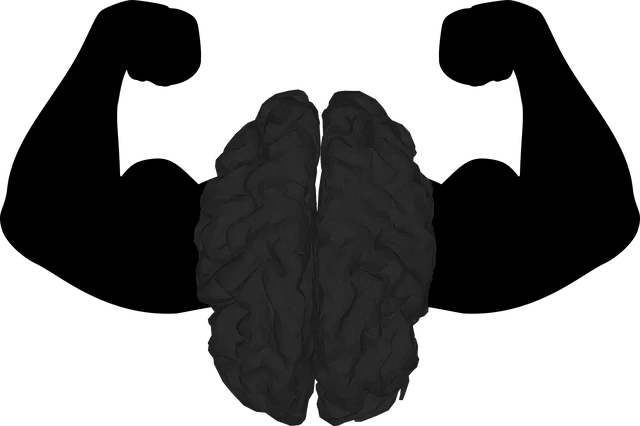Stress management is a vital aspect of mental health, and the Kaiser Permanente Mental Health Center in Parker offers evidence-based solutions through programs like Mindfulness, Cognitive Behavioral Therapy (CBT), Progressive Muscle Relaxation, journaling, and exercise guidance. Their positive reviews highlight effective techniques that require consistent daily practice to enhance well-being, emphasizing the need for integrated self-care within routine healthcare.
Stress management is a vital skill in today’s fast-paced world. This comprehensive guide explores effective techniques to navigate and conquer stress, focusing on both personal growth and professional well-being. We delve into identifying common stressors and their impact on mental health, backed by scientific evidence. The article highlights the resources available at Kaiser Permanente Mental Health Center in Parker, renowned for its holistic approach, offering mindfulness programs, cognitive-behavioral therapy, and progressive muscle relaxation sessions. Learn how consistent practice and daily self-care rituals contribute to long-term stress resilience.
- Understanding Stress: Identifying Triggers and Impacts (Focus on recognizing common stressors and their effects on mental health)
- Evidence-Based Techniques for Effective Stress Management (Highlight scientific approaches like mindfulness, cognitive-behavioral therapy, progressive muscle relaxation, etc.)
- Role of Kaiser Permanente Mental Health Center in Teaching Stress Management (Review services, resources, and programs offered by the center, connecting them to stress management techniques)
- Practical Implementation and Continuous Practice for Long-Term Wellbeing (Discuss the importance of consistency, daily routines, and self-care habits for managing stress effectively)
Understanding Stress: Identifying Triggers and Impacts (Focus on recognizing common stressors and their effects on mental health)

Stress is a pervasive aspect of modern life, impacting individuals across various demographics. Recognizing common stressors and their effects on mental health is the first step in effective stress management, as advised by experts at Kaiser Permanente mental health center reviews Parker. Common triggers range from work-related pressures, financial worries, to interpersonal conflicts, each with distinct impacts on psychological well-being.
The Community Outreach Program Implementation and Mental Health Education Programs Design can play pivotal roles in equipping individuals with the knowledge and tools to manage stress proactively. By understanding these triggers and their manifestations, whether it’s heightened anxiety, depression, or irritability, people can take informed steps towards mood management, ultimately fostering better mental health outcomes.
Evidence-Based Techniques for Effective Stress Management (Highlight scientific approaches like mindfulness, cognitive-behavioral therapy, progressive muscle relaxation, etc.)

Stress management is a vital aspect of maintaining good mental health, and several evidence-based techniques have gained recognition for their effectiveness. Mindfulness, a practice that encourages individuals to focus on the present moment, has been studied extensively. Research at the Kaiser Permanente Mental Health Center in Parker has shown that mindfulness can reduce stress and improve overall well-being. This technique involves observing thoughts and sensations without judgment, fostering a sense of calm.
Cognitive-behavioral therapy (CBT) is another powerful tool. CBT helps individuals identify and challenge negative thought patterns contributing to stress. By replacing these with more realistic and positive ones, CBT boosts emotional intelligence and enhances coping strategies. Progressive muscle relaxation, as suggested by mental wellness experts, involves systematically tensing and relaxing different muscle groups to reduce physical tension and promote a state of tranquility. Combining such scientific approaches with regular journaling and exercise guidance can offer comprehensive stress management solutions, thereby boosting confidence and overall mental wellness.
Role of Kaiser Permanente Mental Health Center in Teaching Stress Management (Review services, resources, and programs offered by the center, connecting them to stress management techniques)

The Kaiser Permanente Mental Health Center in Parker stands as a beacon of hope and support for individuals seeking to manage stress effectively. With its comprehensive suite of services, resources, and programs, the center is dedicated to empowering people through mental health education. Among their offerings are workshops that teach practical Empathy Building Strategies, fostering understanding and connection in stressful situations. These sessions equip participants with tools to navigate challenging interactions, reducing the impact of stressors on both personal and professional life.
In addition to these, Kaiser Permanente’s Mental Health Center reviews highlight their innovative Mental Health Education Programs Design. Tailored to diverse needs, these programs delve into various stress management techniques, from mindfulness practices to cognitive-behavioral therapies. The center also conducts thorough Risk Assessment for Mental Health Professionals, ensuring that practitioners are equipped with the knowledge and skills to handle their well-being effectively while assisting others.
Practical Implementation and Continuous Practice for Long-Term Wellbeing (Discuss the importance of consistency, daily routines, and self-care habits for managing stress effectively)

Stress management is a skill that requires consistent practice to reap long-lasting benefits. At the Kaiser Permanente mental health center in Parker, reviews highlight the effectiveness of their programs in teaching practical techniques for navigating stress. The key to success lies in integrating these strategies into daily routines and adopting self-care habits that promote resilience.
Regularity is essential; dedicating just a few minutes each day to practice mindfulness, exercise, or journaling can significantly impact overall wellbeing over time. Mental Health Education Programs designed with a focus on stress management should emphasize this continuous practice. By incorporating risk assessment techniques for mental health professionals and developing public awareness campaigns, we can foster an environment that prioritizes self-care, making these practices more accessible and encouraging their adoption as part of one’s routine, much like the consistent adherence to medication or therapy sessions recommended by healthcare providers.
Stress management is a vital skill for maintaining mental well-being, and the Kaiser Permanente Mental Health Center in Parker stands as a beacon of support. By combining evidence-based techniques like mindfulness, cognitive-behavioral therapy, and progressive muscle relaxation with practical implementation, individuals can achieve long-term stress reduction. The center’s comprehensive reviews and services make it an ideal resource for learning and practicing effective stress management, ultimately enhancing the quality of life for all who seek its guidance.






